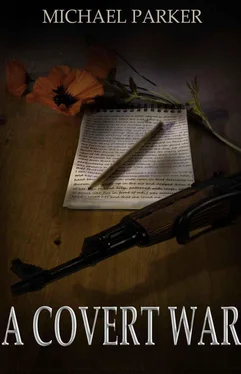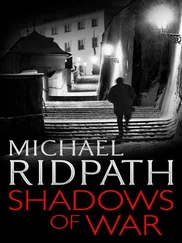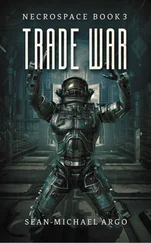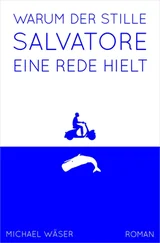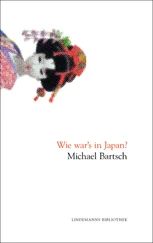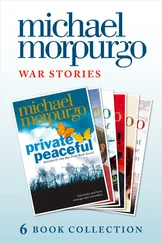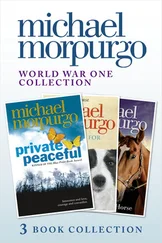Michael Parker - A Covert War
Здесь есть возможность читать онлайн «Michael Parker - A Covert War» весь текст электронной книги совершенно бесплатно (целиком полную версию без сокращений). В некоторых случаях можно слушать аудио, скачать через торрент в формате fb2 и присутствует краткое содержание. Жанр: Триллер, на английском языке. Описание произведения, (предисловие) а так же отзывы посетителей доступны на портале библиотеки ЛибКат.
- Название:A Covert War
- Автор:
- Жанр:
- Год:неизвестен
- ISBN:нет данных
- Рейтинг книги:5 / 5. Голосов: 1
-
Избранное:Добавить в избранное
- Отзывы:
-
Ваша оценка:
- 100
- 1
- 2
- 3
- 4
- 5
A Covert War: краткое содержание, описание и аннотация
Предлагаем к чтению аннотацию, описание, краткое содержание или предисловие (зависит от того, что написал сам автор книги «A Covert War»). Если вы не нашли необходимую информацию о книге — напишите в комментариях, мы постараемся отыскать её.
A Covert War — читать онлайн бесплатно полную книгу (весь текст) целиком
Ниже представлен текст книги, разбитый по страницам. Система сохранения места последней прочитанной страницы, позволяет с удобством читать онлайн бесплатно книгу «A Covert War», без необходимости каждый раз заново искать на чём Вы остановились. Поставьте закладку, и сможете в любой момент перейти на страницу, на которой закончили чтение.
Интервал:
Закладка:
‘Good evening Marcus,’ he said cheerfully. ‘My boy, you have given us a difficult time.’
Marcus looked over Cavendish’s shoulder as Susan walked into the room.
‘Did you phone him when you were outside making coffee?’ he asked sharply.
Susan shook her head. ‘No Marcus, I didn’t. He’s been watching this house for some time now. You just walked into his trap, that’s all.’
FIFTEEN
David Ellis looked out through the windows of the Toyota as Abdul drove through a flat plain of rock and sand. They were in a natural basin that nestled in the foothills of Kondoz in northern Afghanistan. Outside the temperature was in the high forties, while inside the Toyota they rode in air conditioned comfort.
They had been driving for about five hours, with Abdul and his minders taking turns at the wheel. Abdul had said very little to David, but with each day David was becoming more and more familiar with the Persian language that Abdul and his men used. It was basically Farsi, the lingua franca of Afghanistan, although in some of the more remote regions of the country, the farmers used local dialects. So with David’s increasing knowledge of the tongue, he was able to understand a great deal of what was being said. But whenever he spoke to Abdul, he always made sure he spoke in English.
Abdul had been following a river for several miles that flowed through the basin from the upper reaches of the hills, and it was soon evident to David where they were going when he saw the drying pans laid out in rows in the sun. These were pans of raw opium. Each pan held about twenty five to thirty kilos. David knew they wouldn’t be far from a poppy farm now and the preliminary processing plant.
A few houses came into view as the ground gave way to a scattering of trees that screened the poppy fields. Abdul pulled up beside one of the houses and killed the engine. He sounded the horn and got out of the car followed by David and the two minders. Abdul said nothing to either of them but waited until someone came out of the house. It was the poppy farmer.
Immediately the two men began the ritual greeting each other before venturing into the house where David knew they would be obliged to eat according to the traditional hospitality of the Afghan people.
After the meal Abdul got up from the table and beckoned David to follow.
‘We are going out to the sheds,’ he told David. ‘It will be good for you to see the work these men do to make your people rich.’
David got up and followed Abdul out with the farmer. The two minders stayed behind.
They walked some considerable distance from the house before coming to the first of several sheds. David could smell something in the air. It reminded him of the acidic smells of his schooldays in chemistry lessons.
Inside the first shed David saw several containers marked ‘ammonium chloride’ and ‘sodium carbonate’. He knew from titbits of information he had picked up that these were essential chemicals used in the initial process of converting opium sap into pure heroin.
There were several pots of boiling liquid adding to the overpowering, acidic aroma in the shed. On top of the boiling liquid he could see all manner of debris and scum collecting there.
Elsewhere men were straining the cooled liquid from other pots through cheesecloth filters, leaving a sticky residue behind. Abdul explained to David that the residue would be heated and condensed down to leave a paste, and it was this that David saw drying in pans out in the sun.
Abdul explained much of the process to David as they walked through the sheds.
‘The paste will be shipped out across the border from Kondoz into Turkmenistan for processing into pure heroin. We have other processing sites spread all along the border.’
‘Why Turkmenistan?’ David asked him.
Abdul almost snarled when he answered. ‘That is Janov’s part of the operation. It is less trouble shipping it over the border into Turkmenistan than trying to get it through into Pakistan. There are too many British soldiers in Helmand Province.’
‘What about the Americans?’ David asked him.
Abdul allowed himself a wry smile. ‘We have no problems in Nuristan where the Americans are.’ He slapped his thigh a couple of times. ‘They are in our pockets as you say in England.’
‘What about NATO troops?’ David put to him.
Abdul laughed out loud. ‘They are babies; they will not fight, so we have no problem with them.’
They walked out of the shed and into the hot sun. In between talking to David, Abdul had been having a business-like discussion with the farmer. David knew it wasn’t going too well, but he couldn’t figure out why. The farmer stopped on the track and faced Abdul. He bowed his head slightly and said farewell. They shook hands and the farmer went back into the sheds.
‘Abdul,’ David said, putting his hand on Abdul’s arm; something that would have encouraged a severe beating some months ago. ‘Why are you dragging me round like this?’
Abdul considered his reply for a while. Then he put his hands together in an attitude of prayer and began to walk along the track. David fell into step beside him.
‘I want you to learn to trust me, that is why I am keeping you with me,’ Abdul began. ‘I am having many problems now with my suppliers, my farmers. They are holding out on fixing a price.’
‘What has that got to do with me?’ David asked.
‘You will see. You remember the attack on the compound?’ He waited for David to say he did. ‘It was Janov’s doing. One of my farmers who is loyal to me has told me that Janov wants to cut me out.’
‘But you are doing business with Janov,’ David reminded him. ‘You met with him a few days ago.’
Abdul looked hard at David. ‘Janov is an ambitious man, an evil man.’ Abdul seemed to conveniently forget the kind of business he himself was in, the same as Janov. ‘But he is working for his cousin, Danvor. And his cousin works for the American CIA, and one day they will run this country. Soon, if I am not careful, the Americans will come and I will be taken out. That is why I keep moving and why I keep you with me, because I want to exchange you for something.’
David stopped. ‘Exchange me for what, Abdul?’
‘Your freedom and my freedom.’
There was a moment’s silence.
‘I don’t understand,’ David admitted.
Abdul put his hand on David’s shoulder. ‘Your freedom means you can go home and live your life without hindrance, am I right?’ David nodded. Abdul continued. ‘But for me I want something else. I want your country to give me political asylum so I can live my life free from the threat I face from the Americans.’
David was stunned to hear Abdul say that he wanted to get out of the lucrative and criminal business he was in, and that he expected the British to help him achieve that. He feared Abdul was in for a big disappointment.
‘Well you won’t get that in exchange for me, Abdul, I can assure you.’
Abdul smiled. ‘No, but I will if I offer to give them the names of those who are involved here in Afghanistan and in Britain.’
They found Grebo’s body. It had been dumped in a fairly quiet area beside the river. A man walking his dog came across it. The police could not identify the corpse so easily because the face wasn’t there. The bullet into the back of the head had taken Grebo’s face clean off. All the police could do was to cordon the area off and wait for the forensic boys to get to work.
There were no identifying documents on him so they had to rely on dental records, but there was no way of locating a dentist with those records. It was a chicken and egg argument: they had the teeth but no records, and whoever had the records would not know about the teeth. But eventually it was suggested that they check on all Americans living in the area because the dead man was wearing clothing that had probably been purchased in America. Then someone thought of the American Forces stationed in Britain, which widened the search.
Читать дальшеИнтервал:
Закладка:
Похожие книги на «A Covert War»
Представляем Вашему вниманию похожие книги на «A Covert War» списком для выбора. Мы отобрали схожую по названию и смыслу литературу в надежде предоставить читателям больше вариантов отыскать новые, интересные, ещё непрочитанные произведения.
Обсуждение, отзывы о книге «A Covert War» и просто собственные мнения читателей. Оставьте ваши комментарии, напишите, что Вы думаете о произведении, его смысле или главных героях. Укажите что конкретно понравилось, а что нет, и почему Вы так считаете.
